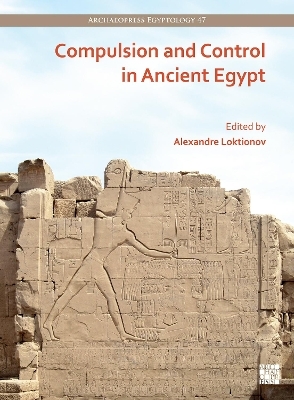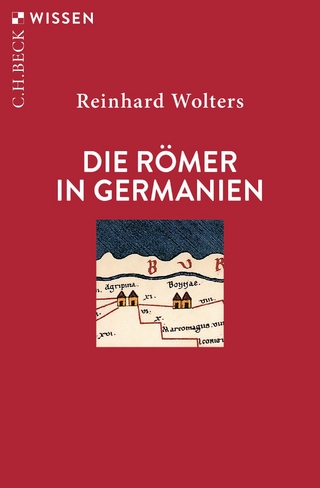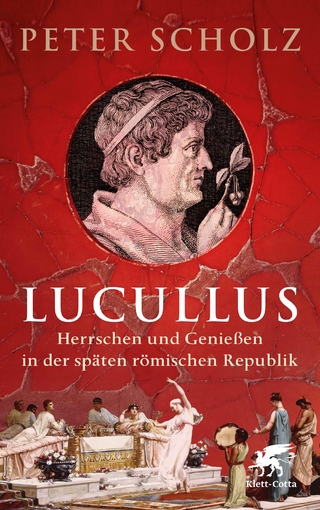
Compulsion and Control in Ancient Egypt
Archaeopress Archaeology (Verlag)
978-1-80327-585-7 (ISBN)
How did the Ancient Egyptians maintain control of their state? This book considers this question from a wide variety of angles and across all periods of Egyptian history, from the Old Kingdom to Coptic times. Topics include the controlling function of temples and theology, state borders, scribal administration, visual representation, patronage, and the Egyptian language itself. These different strands are tied together by legal pluralism theory, which argues that a single state can rely on multiple – and at times even contradictory – strategies for upholding what it considers just within the bounds of what is nominally a single jurisdiction. This theoretical approach, while increasingly common in modern postcolonial studies and the history of law, is yet to be deployed in Egyptology. This book therefore aims to fill that gap. The chapters are expanded versions of papers originally presented at the 3rd Lady Wallis Budge Egyptology conference, organised by Christ’s College and held online on 27th–28th August 2020.
Alexandre Loktionov is Professor of Egyptology at HSE University, Moscow and Budge Fellow in Egyptology at Christ’s College, Cambridge. He is also a Visiting Senior Research Fellow in the Department of Political Economy at King’s College, London, a Fellow of the McDonald Institute for Archaeological Research in Cambridge, and a Fellow of the Royal Society of Arts. His main research interests lie in Ancient Egyptian justice, exchange of intellectual culture between Ancient Egypt and Mesopotamia, and the history of Egyptology. He holds PhD, MPhil and BA degrees from the University of Cambridge and has also previously worked at the John W. Kluge Center at the Library of Congress, Washington, DC.
Preface – Alexandre Loktionov
Introduction: Pluralisms of Compulsion and Control in Ancient Egypt – Alexandre Loktionov
I. Compulsion and Control in the Temple Sphere
1. The Turin Indictment Papyrus (P. Turin C. 1887): an Enquiry about the Forms of Compulsion in
the Text – Marcella Trapani
2. The Egyptian Temples of Oxyrhynchus and their Personnel Under the Roman Empire – Leah Mascia
II. Compulsion and Control in Religious and Funerary Thought
3. ‘You shall not constrain my bꜢ’. Control through and of the bꜢ.(w) – Anne Landborg
4. Ancestors as a Source of Legal Authority – Renata Schiavo
III. Compulsion and Control around Borders
5. Fort-building and Violence as the Mode of Control of the Margins in Late Middle Kingdom Nubia – Adam Fagbore
6. Compulsory Foreign Labour in Late Bronze Age Egypt: Towards Understanding a Forced
Migration-Unfree Labour Nexus – Christian Langer
7. Unwritten Compulsion: Social Integration, Norms and Self-Control at Kurgus in Medieval Nubia – Loretta Kilroe
IV. Compulsion and Control in the Administration of Labour and Human Resources
8. Controlling Workforces at the Palace: Some Perspectives on Administrative Practice at
Kom Medinet Gurob – Fredrik Hagen
9. Bureaucratic Control of New Kingdom Tomb Building Projects – Rune Olsen
V. Compulsion and Control in Text and Image
10. Images of Control and Submission in Old Kingdom Funerary Iconography: The Egyptian Tomb
as a ‘Disciplinary Institution’ – Matthieu Hagenmüller
11. Social Control in Middle Kingdom Egypt: Embodied Experience and Symbolic Violence – Margaret Maitland
12. Human Branding Practices during the New Kingdom: A Form of Control between Metaphor
and Reality – Marta Valerio
VI. Compulsion and Control through Patronage and Unequal Status Relationships
13. Patronage and Protection in Late Pharaonic and Ptolemaic Egypt – Brian Muhs
14. “When Dad says no”: Paternal Authority and Control in the Context of Egyptian Men’s First Marriages – Steffie van Gompel
VII. The Language of Compulsion and Control
15. Words that bind: Earlier Egyptian Language of Compulsion and Control – Sami Uljas
16. How to tell of Compulsion and Control in Demotic: a Prospect from Contextual Narratology – John Tait
17. Perceptions of Liberty in the Coptic Period: Affective Responses to Socio-religious Pressures
in the Western Desert – Victoria Fendel
| Erscheinungsdatum | 25.11.2023 |
|---|---|
| Reihe/Serie | Archaeopress Egyptology |
| Zusatzinfo | 43 figures, 6 tables (colour throughout) |
| Verlagsort | Oxford |
| Sprache | englisch |
| Maße | 203 x 276 mm |
| Themenwelt | Geisteswissenschaften ► Archäologie |
| Geschichte ► Allgemeine Geschichte ► Altertum / Antike | |
| ISBN-10 | 1-80327-585-5 / 1803275855 |
| ISBN-13 | 978-1-80327-585-7 / 9781803275857 |
| Zustand | Neuware |
| Informationen gemäß Produktsicherheitsverordnung (GPSR) | |
| Haben Sie eine Frage zum Produkt? |
aus dem Bereich


